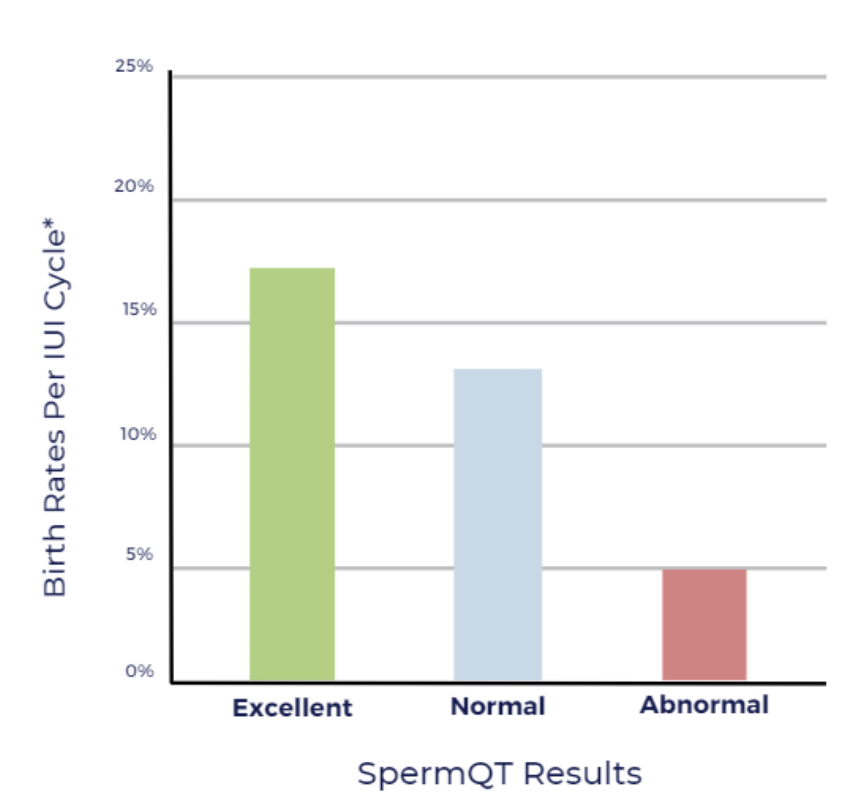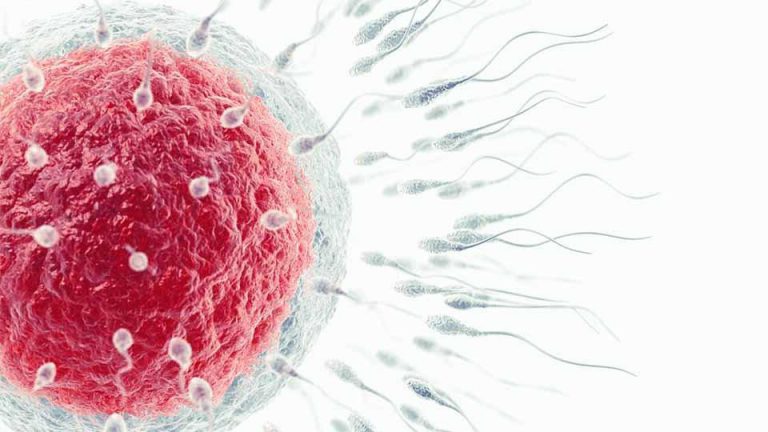In this article, we will walk you through the process of understanding fertility test results using SpermQT. Our goal is to empower you with answers so that you can make informed decisions and move forward on your fertility journey with optimism. We’ll shed light on the meaning of these fertility test results and offer guidance on what steps you can take next.
What is SpermQT?
SpermQT, or Sperm Quality Test, looks inside the sperm at its genes to measure the sperm quality. Understanding sperm quality can help determine if the sperm are able to do their job during IUI.
In short, SpermQT is a predictor of IUI success.
How does SpermQT Measure Sperm Quality?
The male human body produces a new crop of sperm every three months. During that phase, sperm quality can be impacted by a variety of factors such as diet, exercise, sleep, alcohol, smoking, and more.
These external factors can help or harm the genes inside the sperm. Negative factors can cause the genes to become dysregulated, or unbalanced. The higher the number of dysregulated genes, the lower the quality of sperm.
SpermQT measures the number of dysregulated genes – and from that number – the sperm quality is measured as Excellent, Normal, or Abnormal.
What do SpermQT Fertility Test Results Mean?
Excellent Sperm Quality
An Excellent SpermQT result means that the sperm genes have been minimally impacted by environmental or lifestyle factors. This indicates that the genes analyzed with SpermQT are functioning above average. A couple with an Excellent SpermQT result has approximately a 17% chance of achieving pregnancy per IUI attempt.*
Normal Sperm Quality

A Normal SpermQT result means that the sperm genes have been impacted by environmental or lifestyle factors within a normal or expected range. This indicates that the genes analyzed with SpermQT are functioning properly. For a couple with a Normal SpermQT result, the likelihood of achieving pregnancy with IUI is comparable to the population average, estimated at approximately 13% per IUI attempt.*
Abnormal Sperm Quality
An Abnormal SpermQT result means that the sperm genes have been significantly impacted by environmental or lifestyle factors. This indicates that the genes analyzed with SpermQT are functioning below average. A couple with an Abnormal SpermQT result has approximately a 5% chance of achieving pregnancy per IUI attempt*.
*Per cycle cumulative average success rates when female patient age is under 35.
What if my SpermQT Result is Abnormal?
Patients with an Abnormal SpermQT result have a lower success rate with IUI. However, there is no significant difference in success rates for Excellent, Normal, or Abnormal results when doing IVF with ICSI. In other words, an Abnormal SpermQT result does not impact the likelihood of success when doing IVF with ICSI.
This suggests that IVF with ICSI can overcome issues associated with an Abnormal SpermQT results, by essentially doing the job for the sperm.
Why Fertility Test Results are Critical
Path Fertility is bringing more answers and insights to the male side of the fertility equation, guiding couples to make more informed decisions on their fertility journey.
Knowing what procedures will and will not work can empower couples to have more sense of control over how to move forward in their fertility journey and ultimately, to achieve their goal of bringing home a baby.







